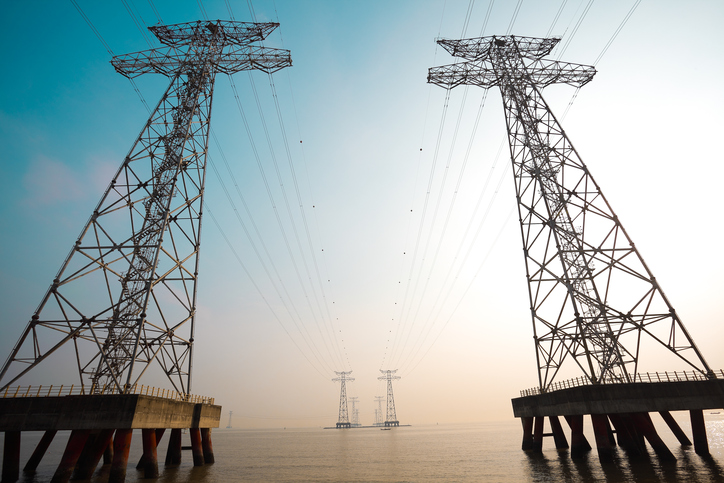The ‘Beast from the East’ cold snap in late February and early March exposed what Drax Group has dubbed an “undue reliance” on the country’s interconnection capacity.
A new report released by Drax Electric Insights finds that despite power demand surging as temperatures plummeted between 26 February and 3 March, the UK actually exported power to France via its interconnectors owing to market forces.
On the two coldest days of the period – 28 February and 3 March – wholesale power prices in the UK soared to more than five times the quarterly average, peaking at around £990/MWh.
But despite the demand, Great Britain’s interconnectors actually exported power to Europe to meet increasing demand from French consumers who use more electricity for heating than their UK counterparts.
The UK’s existing interconnector capacity with France stands at 2GW courtesy of the IFA interconnector, operated by National Grid and RTE, which runs from Folkestone to Calais. It accounts for half of the UK’s total interconnection capacity, with others connecting the UK with the island of Ireland and the Netherlands.
But more interconnectors are in various stages of planning. Two are due to be operational from next year – the ElecLink with France and NEMO project with Belgium – and a raft of others set for completion in the early 2020s connecting the UK with France, Norway, Denmark and Ireland.
Interconnectors are also set to play a significant role in the country meeting its climate commitments due to greater importance being placed on the trade of energy to meet shifting demand between connected states.
However the authors of this report claim that its findings are evidence that interconnectors and their openness to market forces, at least in this instance, have proven “less than helpful”.
Imperial College London’s Iain Staffell, who co-authored the report, said interconnectors ultimately “drove up wholesale power prices” during the period.
Andy Koss, chief executive at Drax Power, said: “While the European interconnector is an an important part of Great Britain’s electricity infrastructure, it responds solely to price. Therefore, if Europe has a cold snap, the country is at the end of the line, leaving consumers vulnerable to security of supply and higher prices.
“As the country looks to procure future electricity capacity, the ‘Beast from the East’ is a reminder that security of supply must be the priority so that Great Britain doesn’t catch a cold when Europe sneezes.”






